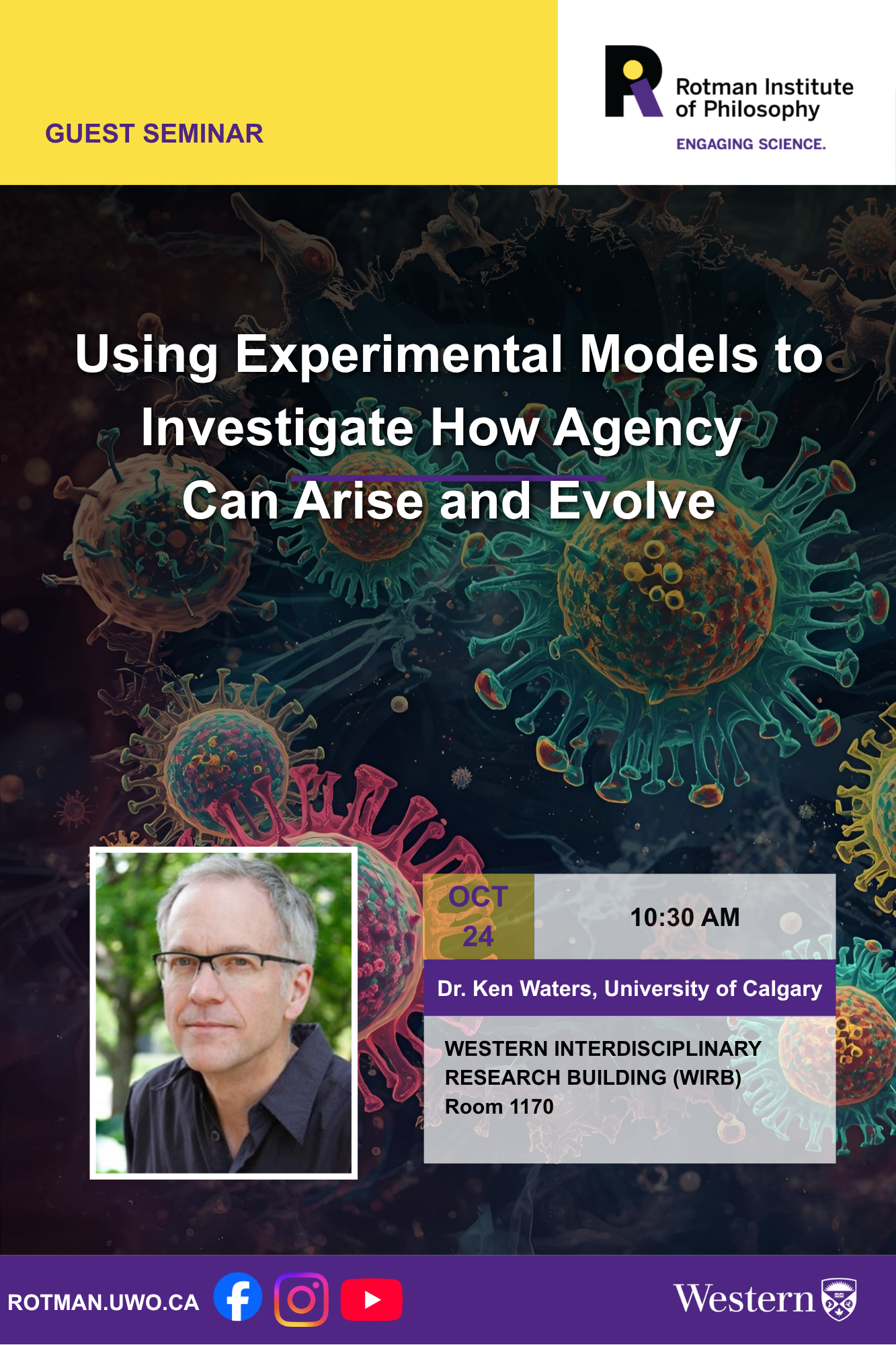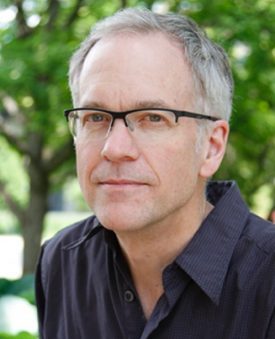

Rotman Guest Speaker: Dr. Ken Waters
24 October 2025, 10:30 am - 11:30 am EDT
“Using Experimental Models to Investigate How Agency Can Arise and Evolve”
Abstract:
Waters will describe a project he is leading that involves collaboration of scientific research teams and his philosophical team. The project employs experimental models to investigate and represent how agency can arise and evolve. Waters team is articulating the concepts and investigative approaches being employed by the scientific researchers. Michael Travisano’s lab at the University of Minnesota has constructed a model to investigate how agency can arise in simple, non-cellular systems. Their new model for experimental evolution uses single-stranded DNA to investigate how populations can alter ecological contexts and open up opportunities for subsequent evolutionary change. Maria Robelleda-Gomez lab at the University of California – Irvine has constructed an experimental model to investigate the evolution of biological agency in complex systems consisting of a community of several microbial species. She uses this model to investigate how overall community functioning is a consequence of the interaction of microbial species in partitioning resources arising from metabolic constraints. Valeria Souza’s group at UNAM is applying experimental techniques to investigate an In situ model: microbial communities at Cuatro Ciénegas Basin (CCB) in Coahuila, Mexico. She uses this model to investigate how evolutionary feedbacks can change environmental landscapes in ways that impede rather than facilitate directional change. Our empirical investigations are guided by the idea that iterative processes produce opportunities for dramatic innovation, giving rise to agential systems that set new directions for evolutionary change. These iterative processes involve eco-evolutionary feedbacks in which preexisting ecology shapes evolutionary outcomes, shaping new ecology.
Bio:
 Dr. C. Kenneth Waters is a Canada Research Chair at the University of Calgary. Dr. Waters’ research concerns the nature of scientific knowledge and the conditions that make this knowledge possible. His belief is that that biology provides an illuminating context for investigating a number of philosophical issues concerning science, and he is fascinated by biologists’ efforts to investigate, manipulate, and understand life. His particular interests include evolutionary biology (specifically concerning issues related to epistemic pluralism and causation), and genetics and allied sciences (specifically issues about realism, reductionism, and the structure of scientific knowledge). He was previously at the University of Minnesota, where he was named a Scholar of the College from 2009-2012, and prior to that was the John Dolan Professor from 2007-2009.
Dr. C. Kenneth Waters is a Canada Research Chair at the University of Calgary. Dr. Waters’ research concerns the nature of scientific knowledge and the conditions that make this knowledge possible. His belief is that that biology provides an illuminating context for investigating a number of philosophical issues concerning science, and he is fascinated by biologists’ efforts to investigate, manipulate, and understand life. His particular interests include evolutionary biology (specifically concerning issues related to epistemic pluralism and causation), and genetics and allied sciences (specifically issues about realism, reductionism, and the structure of scientific knowledge). He was previously at the University of Minnesota, where he was named a Scholar of the College from 2009-2012, and prior to that was the John Dolan Professor from 2007-2009.
Attendance is free; no RSVP is required.
